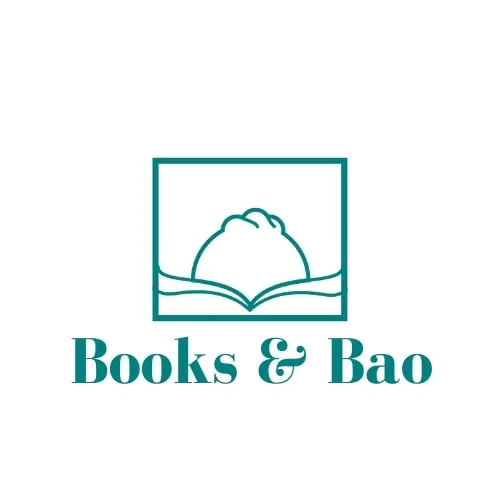Book blogging is a competitive business, depending on how you look at it. If you’re book blogging because you simply want an outlet for your thoughts and feelings, or because you want to be a part of the bookworm community, then you’re in for a lot less stress.

However, if you’re book blogging with a view to standing out, getting attention, and even making money from book blogging, then you’ll need to approach things with a little strategy.
One vital strategy is to pick a niche. This is a guaranteed method of standing out in the crowded world of book bloggers.
A niche means that you are advertising yourself as an expert in one particular area of the literary world. A niche means you are the person people will turn to when looking for more of a particular genre, period, or country’s literature.
Book Blogging Tips: Picking a Niche
This advice comes from a niche book blog. We’ve made our site a success by choosing a niche, and having it be one that is underrepresented; one that we already dearly loved beforehand. Everything we have to teach you here, we’ve learned from experience.
Our niche is “translated world literature”. Yours might be a genre like sci-fi or romance; it might be an era like gothic or Victorian; it might be literature from one specific country. Whatever it is, here’s how to make a success of having a niche in book blogging.
Read More:
- How To Start a Successful Book Blog in 9 Easy Steps
- Book Blogging: How to Request ARCs
- How to Be a Successful Booktuber (10 Tips)
- Starting and Growing Your Bookstagram (With 200 Hashtags)
Do you have to pick a niche?
No. You can stand out as a book blogger on your charms, your writing style and skills, and your prominence on social media. However, having a niche certainly has more pros than it does cons. So, let’s go through a few of those here.
Pros of Picking a Niche
You’re more likely to get noticed and be recognised as an authority in your niche. This can lead to all sorts of exciting things like paid promotions, review copies, invitations to conferences, conventions, author talks, and more. Being an authority brings respect and is, quite simply, a very cool feeling.

Your audience is more likely to be loyal and follow along. If you become a reliable source of information in your niche, people will come back time and again. Before you know it, you have a fanbase. If, for example, you are known as the sci-fi girl, sci-fi fans will turn to you weekly for any news or upcoming books in that genre.
A niche makes keeping up with new releases possible. What I mean here is that, as a book blogger and book reviewer, you’ll end up getting a lot of review copies from publishers. And there will be a lot of books you’ll want to cover. It can be overwhelming.
If you select a specific niche, however, your job is now to simply keep up with and review books within that niche. It’s manageable and you get to keep up with the latest news and books much more easily and practically.
Cons of Picking a Niche
You may have many interests and favourite genres, and you’re going to have to sacrifice review copies or invites to events that don’t suit your niche. This happens to us on a monthly basis. Since we specialise in translated literature and world travel, we can only cover books that meet these requirements.
While we could review a book about Chinese history or a novel written in Spanish, we can’t really cover an American fantasy novel, even if we would love to. This is a big limitation to having a niche. But it is the only real downside to niches in book blogging.
Read More: How to Work from Home Effectively
How to pick a niche
Write down the titles, authors, and genres of the last twenty books you’ve read for pleasure and consider what they all have in common with one other. These are the themes/genres you’re going to be predominantly reading long-term so you have to be genuinely interested.
While there is flexibility, if you truly want to niche down then you have to dedicate yourself to one genre or style. At times, book blogging can take the fun out of reading and feel like a chore (rarely, thank goodness) so you’ll have to really love your chosen genre to be able to get through those times and get a review out in time.
In short, don’t start a website on classic literature if you struggle to get through Jane Eyre.

As for picking a book blogging niche that will stand out, do a little googling. See who is already blogging about your preferred niche. Look at how many book blogs there are, how successful they are, and whether or not you think you can A. do it better than them and B. offer something entirely new that’s still within the same niche.
There is room in every niche for multiple book bloggers, but you do need to make sure you can approach your niche from a different angle.
For example, we know plenty of other bloggers who cover translated world literature, so we skew ourselves specifically to East Asian literature. We also interview translators (not authors), which is something that makes us very unique. What can you do within your niche that will make you stand out as a book blogger?
Read More: Get Started With Freelance Writing
Once you have a book blogging niche:
- Make it clear what your niche is. Put in your blog’s name, bio, ‘about us’ page etc.
- Follow publishers who specialise within that niche on Twitter and Instagram. Also, follow anyone working in publicity within those publishing houses.
- Follow accounts, journals, and magazines which are remotely associated with your chosen niche. You need to stay in the loop and embed yourself within your chosen community.
- Follow other book bloggers/booktubers/bookstagrammers in your niche (and beyond your niche because there are, after all, so many talented creatives out there) and see what they’re up to. This will give you inspiration and help keep you up to date with your new industry. Sharing the things they share and post will give you more content to share and attract new followers.
- Follow relevant hashtags on Twitter and Instagram. Comment and engage with any similar accounts to gain exposure.
And there you have it, everything you need to know about picking a niche…or not. Do you think you should niche down? Let us know in the comments.
